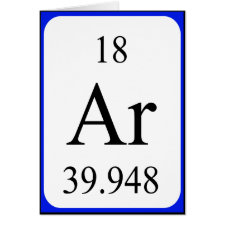
Authors: Philip C, Devaky KS
Article Title: Multiwalled carbon nanotubes with surface grafted transition state analogue imprints as chymotrypsin mimics for the hydrolysis of amino acid esters: Synthesis and kinetic studies.
Publication date: 2017
Journal: Molecular Catalysis
Volume: 436
Page numbers: 276-284.
DOI: 10.1016/j.mcat.2017.04.028
Alternative URL: https://www.researchgate.net/profile/K_Devaky/publication/316808736_Multiwalled_carbon_nanotubes_with_surface_grafted_transition_state_analogue_imprints_as_chymotrypsin_mimics_for_the_hydrolysis_of_amino_acid_esters_Synthesis_and_kinetic_studies/links/592fa0e1aca272fc55e10f34/Multiwalled-carbon-nanotubes-with-surface-grafted-transition-state-analogue-imprints-as-chymotrypsin-mimics-for-the-hydrolysis-of-amino-acid-esters-Synthesis-and-kinetic-studies.pdf
Abstract: A novel enzyme like polymer catalyst with imidazole moiety has been fabricated on multiwalled carbon nanotubes (MWCNT) by molecular imprinting technology. Molecular imprinted polymers (MIP) were formed from the functional monomer methacryloyl-l-histidine, the transition state analogue (TSA) phenyl 1-benzyloxycarbonylamino-4-methoxybenzyl phosphonate as a template, ethylene glycol dimethacrylate (EGDMA) as crosslinking agent) and vinyl functionalized MWCNT by thermal polymerization technique. FT-IR and transmission electron microscopy (TEM) were used to characterize the composite structure and morphology of the MIP grafted MWCNT. The catalytic activities of TSA imprinted and non-imprinted polymers towards the hydrolysis of p-nitrophenyl esters of Z-l-phenylalanine (Z-Phe-PNP) were investigated. Substrate hydrolysis catalyzed by TSA imprinted polymer was followed under pseudo-first-order conditions and compared with the corresponding non-imprinted polymer catalyzed and uncatalyzed reactions. The catalytic activity of the TSA imprinted polymer is found to be substrate specific and depends on solvent, concentration and pH of the medium. The second order rate constants ( k cat ) were also evaluated. To get an insight into the role of MWCNT, esterolytic reactions with TSA imprinted and non-imprinted polymers without MWCNT were also carried out
Template and target information: phenyl 1-benzyloxycarbonylamino-4-methoxybenzyl phosphonate, transition state analogue, TSA
Author keywords: MWCNT, TSA, molecular imprinting, Catalytic ester hydrolysis



Join the Society for Molecular Imprinting

New items RSS feed
Sign-up for e-mail updates:
Choose between receiving an occasional newsletter or more frequent e-mail alerts.
Click here to go to the sign-up page.
Is your name elemental or peptidic? Enter your name and find out by clicking either of the buttons below!
Other products you may like:
 MIPdatabase
MIPdatabase









